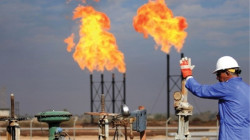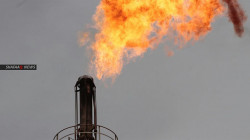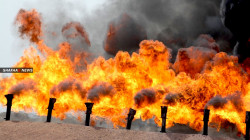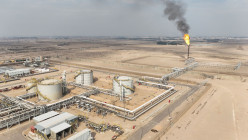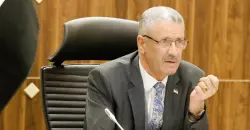Gas Flaring in Iraq: Poisoning the people or assassinating the budget?
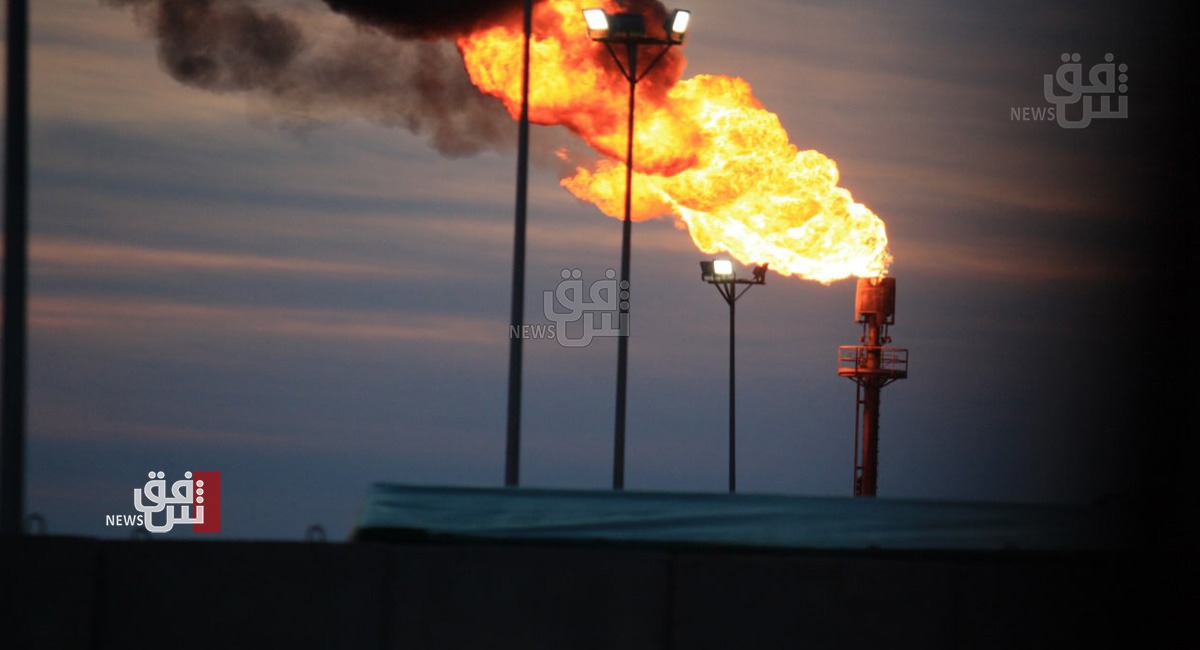
Shafaq News / Climate change poses significant issues to the world, such as poor rainfall and rising temperatures, which impact food security and people's livelihoods globally.
At its recent climate change conference in Glasgow, Scotland, the United Nations noted that countries vulnerable to climate change were on the verge of extinction unless action is taken to avoid it, indicating that global warming could render parts of the world uninhabitable.
The UN climate summit in Glasgow, which was initiated last November, and attended by representatives from more than 190 countries, is seen by experts as the "last and best hope" for addressing climate change.
Iraq is one of the most vulnerable countries to natural disasters and severe environmental degradation due to environmental neglect caused by poor legislative and regulatory frameworks for environmental management and weak institutional arrangements and capacities.
Torches gas
"The most important pollutant in the oil industry is torches gas, as most of the gas produced is associated," Abdul Baki Khalaf, an advisor to the Iraqi Ministry of Oil, told Shafaq News agency, adding, "Iraq invests 51% of the associated gas and the rest is a torches-burning gas. Every time one million feet of gas is burned, about 53 tons of carbon dioxide are released into the atmosphere."
"The real challenge is to invest the gas in energy rather than burning it. However, large sums of money are required", Khalaf stated, pointing that he expects to see these flames extinguished within the next five years, even though it will take years and huge investments. "
75% pollutants
"The number of emissions included in Iraq's national contribution document identified that 75% of emissions and pollutants come from the energy sector," said Saad Abdul Aziz, an environmental and climate specialist at the Oil Ministry, adding, "The energy sector includes not only oil, but electric power, the industrial sector, and transportation, which use torches and chimneys that release carbon dioxide and methane gases."
"Iraq's national contribution emissions to the UN require a decrease in emissions of 1.2% of total gas emissions, and maintaining 13 to 15% of security, peace, and international help. It is conditional on Iraq's status as one of the most susceptible countries in the overall scenario, as well as the existing climate changes," Abdul Aziz added.
"The percentage pledged by Iraq will be adhered to from 2021 to 2030," he said, adding that this document is voluntary, and all ministries will apply the conditions for reducing emissions and pollutants.
A report by risk consultancy Ferrisk Maplecroft stated that climate change threatens 40% of the world's oil and gas reserves, noting that Saudi Arabia, Iraq, and Nigeria are among the countries most at risk, "Large amounts of the world's oil and gas reserves are at risk from rising waves, storms, floods and sharp warming due to climate change."
The above has put Iraq in a dilemma due to its commitment to limit output and prevent gas burning, as well as the negative impacts that may occur on the general budget, as the country relies on oil for more than 90% of its revenue.
Unilateral commitment
According to Saad Abdel Aziz, the main countries have said that the causes of global warming are fossil fuels, making this a serious crisis for oil countries, including Arab oil producers.
"The industrial countries have invested heavily in oil and have reached advanced technology. Yet, those same countries are attempting to force oil companies or countries to reduce their emissions by reducing production, which is not true, because one of the most important principles of the agreement is that the responsibility is shared," Abdel Aziz pointed.
"Countries with sustainable development can not compel oil-producing countries to take serious action in this regard, especially when it comes to oil countries that depend 90% on oil to finance their public budgets," he said.
Zeroing the gas
"Iraq has signed contracts to benefit and invest as much as possible in associated gas, and thus will achieve two demands in this regard; the first is zeroing the burning associated gas, while the second is its commitment to its international agreements to reduce carbon dioxide emissions in the atmosphere," Energy Journalist Dhurgham Mohammed Ali told Shafaq News agency.
"Talking about zeroing gas now is difficult, but 2023 and 2024 will witness an addition of 600 million cubic feet compared to the total production of associated gas from the Artawi fields," Ali said.
"Iraq's commitment to its international climate agreements will not affect Iraq's budget, as long as investment projects are producing associated gas that will generate funds for Iraq to benefit from in its general budget," he concluded.
